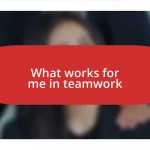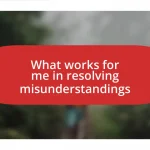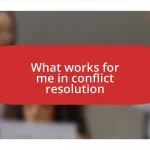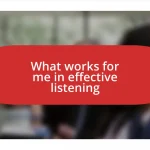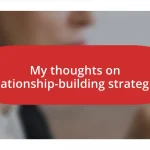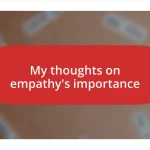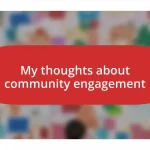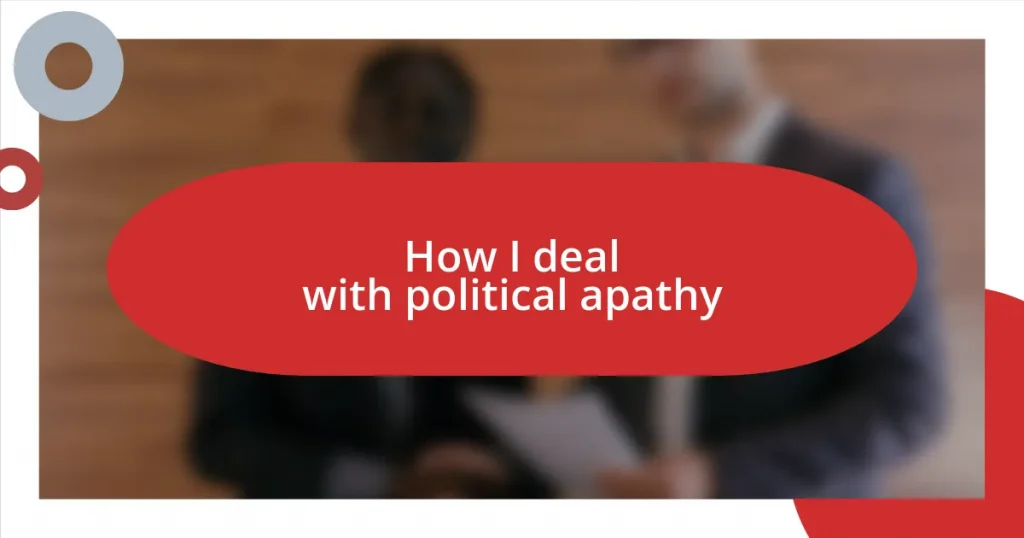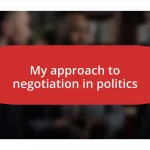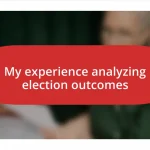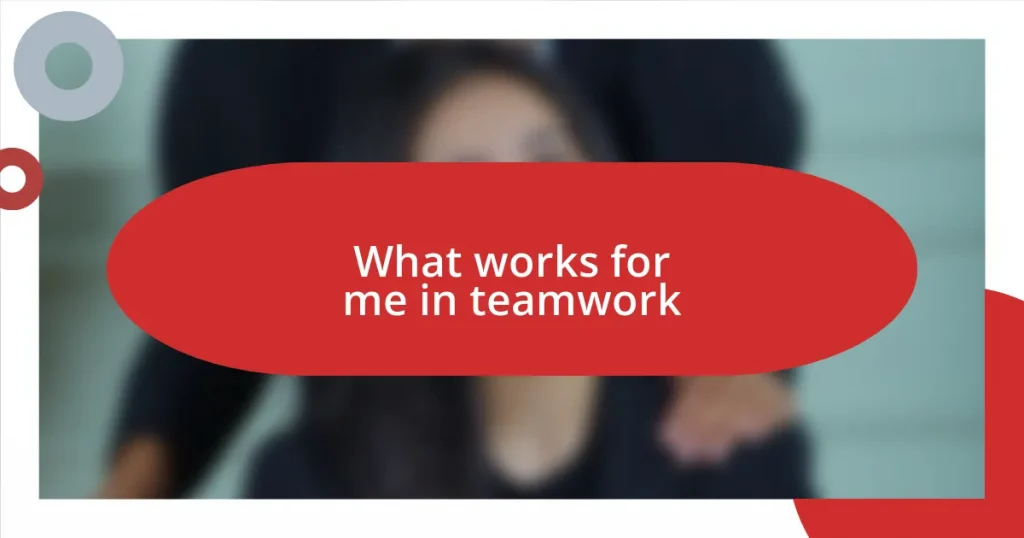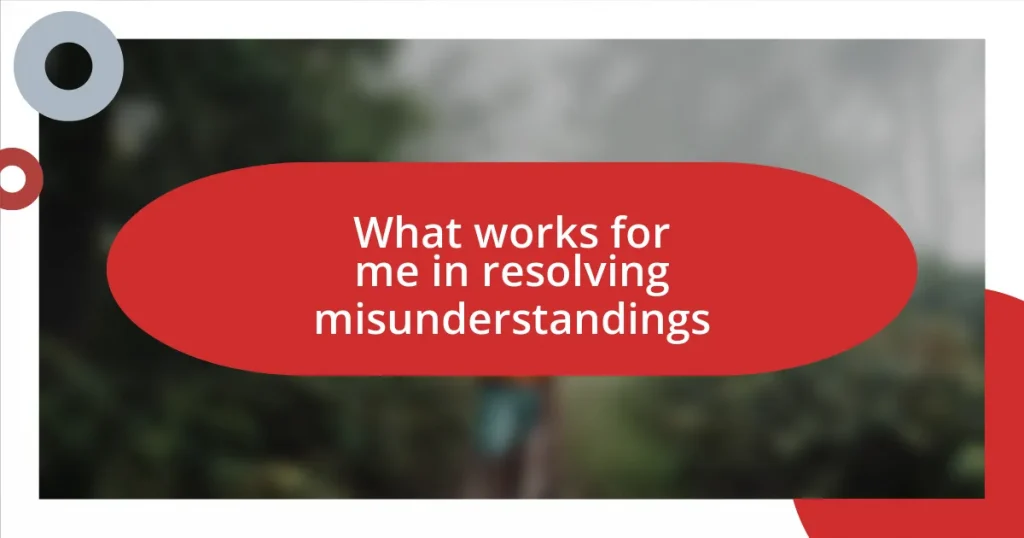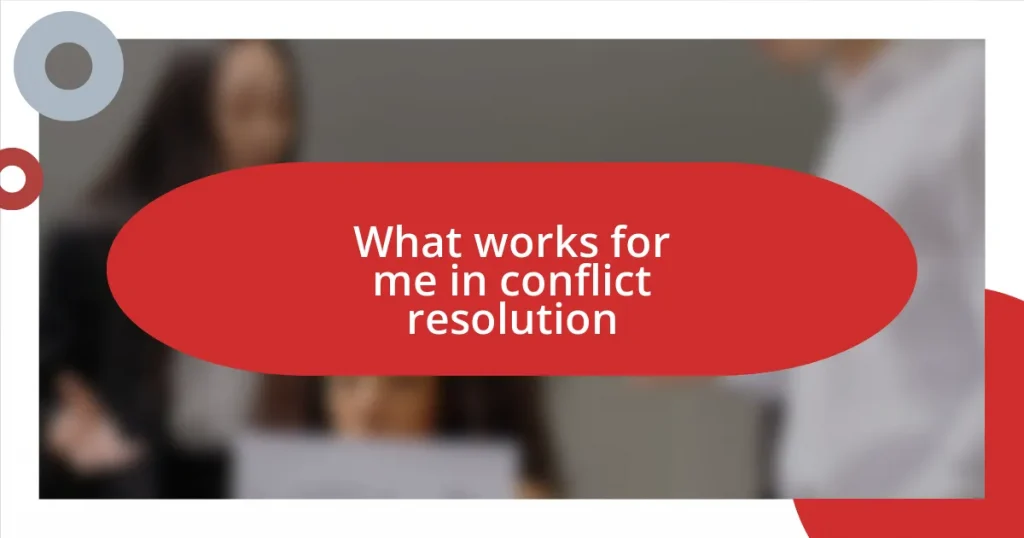Key takeaways:
- Political apathy often arises from feelings of disillusionment and systemic barriers, leading to disengagement from the political process.
- Identifying personal motivations and engaging with local communities can reignite interest in political issues and foster a sense of agency.
- Practicing informed discussions and utilizing educational resources enhances understanding and encourages meaningful dialogue on political matters.
- Taking actionable steps, such as volunteering and attending town hall meetings, empowers individuals to reclaim their voices and influence change in their communities.
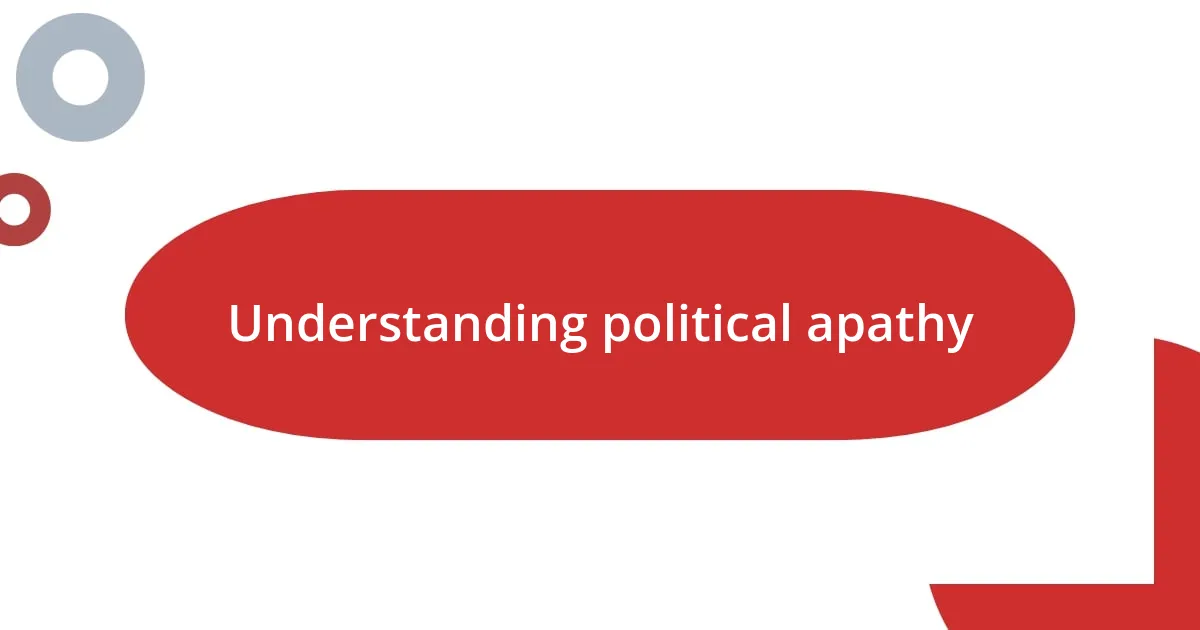
Understanding political apathy
Political apathy often stems from a feeling of disillusionment and helplessness. I remember a time when I felt overwhelmed by the sheer chaos of political debates and negative narratives dominating the news. It made me question whether my voice or vote even mattered in the grand scheme of things. Have you ever felt that way?
This emotional disconnect can lead to a sense of disengagement; I’ve seen friends disengage simply because they felt uninformed or overwhelmed by the complexity of political issues. Just last year, while discussing local elections over coffee, one of my closest friends admitted she didn’t vote because she thought all candidates were the same. It’s heartbreaking to see genuine concern overshadowed by a resignation to the status quo.
At its core, understanding political apathy requires us to consider the systemic barriers that contribute to this mindset. I often reflect on how many potential voters are turned off by the endless negativity and divisive rhetoric. This raises an important question: What can we do to foster a sense of hope and agency in our communities to combat this disconnection?
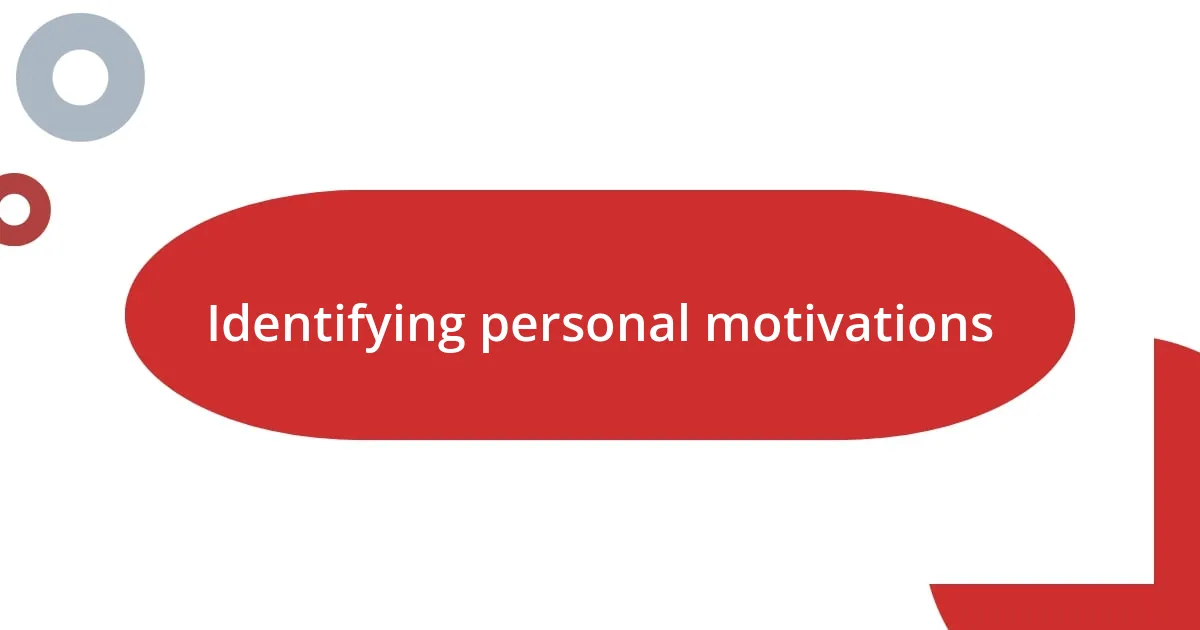
Identifying personal motivations
Identifying personal motivations can be a transformative process. For me, it started with listing out what truly matters in my life—justice, equality, and community engagement. The realization that these values align with political advocacy ignited a passion I didn’t know I had. Have you thought about what drives you?
In my experience, reflecting on past moments when I felt motivated to act—like rallying with friends for a local cause or volunteering for a community program—helped connect the dots. I remember one particular Saturday where I helped organize a fundraiser for underprivileged youth. The experience not only invigorated me but also highlighted how I could channel my concerns into meaningful action. This made me realize that my motivations indeed lie in creating tangible change.
When I started engaging with local political issues, I focused on areas that sparked my interest. Whether it was environmental concerns or social justice, I found that diving deeper into these subjects made me feel more connected and less apathetic. It’s fascinating how uncovering our motivations can lead to a greater sense of purpose, making us feel that our engagement truly counts.
| Motivation | Personal Experience |
|---|---|
| Justice | Rallying for community causes |
| Community Engagement | Volunteering at fundraisers |
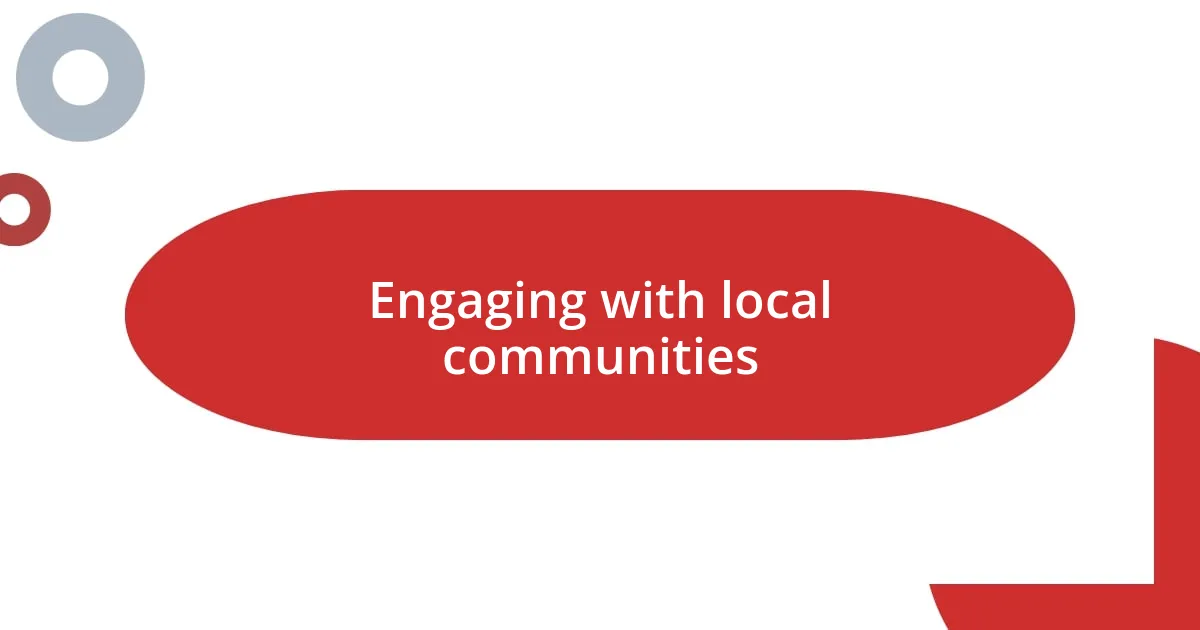
Engaging with local communities
Engaging with local communities opens doors to combat political apathy in meaningful ways. I’ve found that local events, like town hall meetings or community forums, can be enlightening. Just a few weekends ago, I attended a neighborhood gathering, and the energy in the room was contagious. Everyone shared their stories, challenges, and hopes. I felt a sense of unity that is often missing in broader political discussions.
Here are a few ways to get involved with your community:
- Attend Local Events: Look for community meetings or cultural festivals that spark your interest. It’s amazing how these gatherings can reveal shared concerns.
- Volunteer for Local Causes: Whether it’s at a food bank or a youth program, volunteering grounds you in the needs of your community and breeds motivation.
- Start Conversations: I often engage my neighbors in discussions about local issues over coffee—it’s surprising how much we can learn from each other.
- Participate in Local Elections: Getting involved with local political campaigns can provide insight into the candidates’ views and allow you to advocate for issues you care about.
Communities thrive when individuals share their experiences and collaborate for change. Each small effort can help forge connections and reignite a sense of agency in an often overwhelming political landscape.
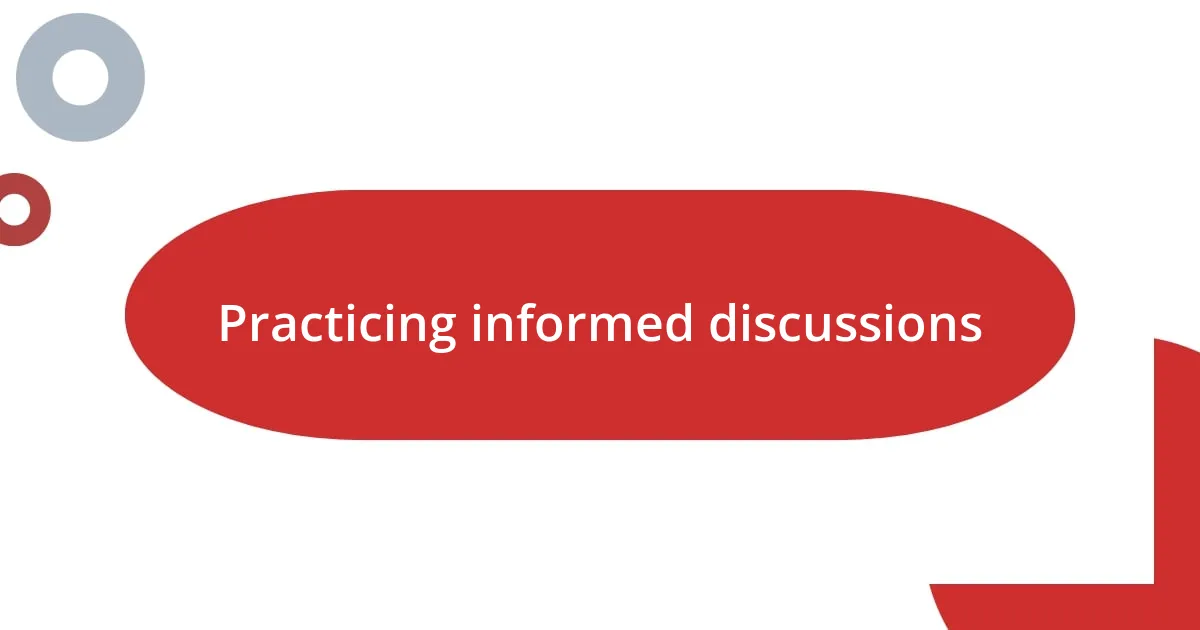
Practicing informed discussions
Practicing informed discussions is all about cultivating a space where ideas can flow freely and respectfully. I remember a time when I joined a small group discussion on climate change. At first, it was daunting to voice my thoughts among people who seemed so knowledgeable. But as we shared our perspectives, I realized that each person brought something valuable to the table. It made me ponder—how often do we miss out on learning from others because we’re afraid to speak up?
What I’ve found is that preparation fuels confidence. Before engaging in discussions, I take the time to research key topics and recent developments. For instance, I read articles or listen to podcasts, which not only deepen my understanding but also provides me with a wealth of information to share. When I brought up the topic of renewable energy at a recent dinner party, it sparked a lively exchange. It was gratifying to see how my research not only bolstered my arguments but also encouraged others to share their insights.
I’ve learned that listening is just as crucial as speaking. I often ask open-ended questions to invite dialogue, such as, “What do you think about the recent policy changes?” It’s amazing how these questions can lead to rich discussions where everyone feels included. Maintaining an open mind and being willing to explore differing viewpoints has not only enhanced my knowledge but also fostered a sense of connection among participants. Engaging passionately with others opens up new perspectives, fueling an ongoing journey of learning.
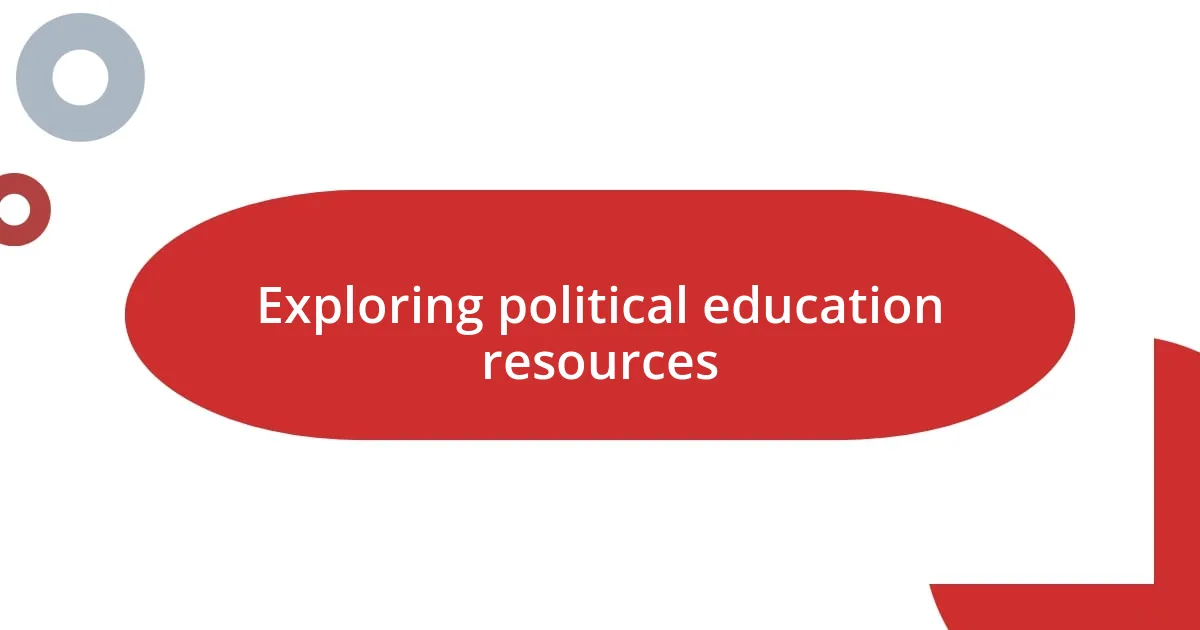
Exploring political education resources
Exploring resources for political education can truly elevate our understanding of complex issues. I’ve come across some incredible online platforms that make learning accessible and engaging. For example, I often dive into websites like Coursera and edX, where I enrolled in free courses on political theory. It’s fascinating how a structured curriculum can transform my perspective and help distill dense concepts into digestible insights.
I remember finding a podcast series dedicated to civic engagement—talk about eye-opening! Each episode featured stories from ordinary citizens making significant impacts in their communities. It made me wonder, how many voices go unheard simply because we don’t seek out their stories? Listening to these experiences not only informed me but inspired me to take action in my own neighborhood.
Additionally, local libraries often have hidden gems in the form of workshops or speaker events. Last summer, I attended a panel discussion on the importance of voting rights, which ignited a spark within me. There’s something powerful about seeing people share their knowledge firsthand. Have you ever thought about how local educational resources can enrich your understanding of politics? It’s a reminder that learning can happen anywhere and often in the most unassuming places.
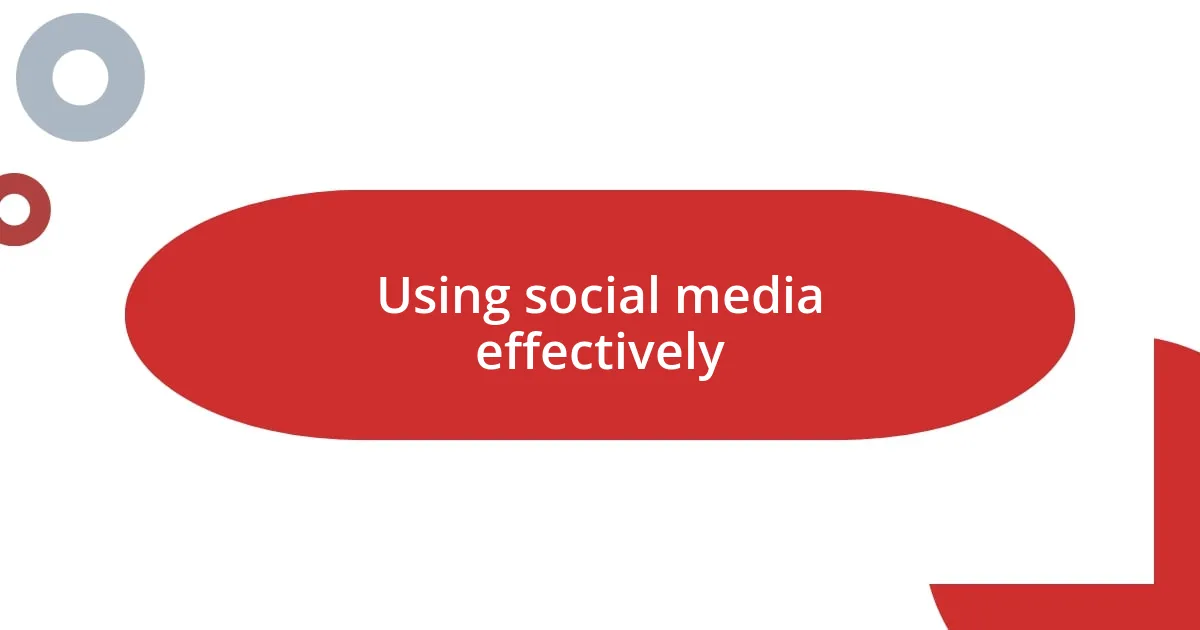
Using social media effectively
Using social media effectively can be a game changer in the fight against political apathy. I recall one evening when I decided to share a thought-provoking article on my Twitter feed about voter turnout. To my surprise, it sparked conversations with friends I hadn’t heard from in ages. It became clear to me that social media has the power to connect us and translate complex political issues into relatable discussions. Have you ever felt like a single post could ignite curiosity in others? I certainly have, and it was gratifying to see how one share led to a cascade of meaningful dialogue.
I’ve found that curating the content I follow helps me stay updated without feeling overwhelmed. I make it a point to follow balanced accounts that provide diverse viewpoints on political matters. This practice not only educates me but also fosters engaging discussions on my timeline. For instance, I once joined an Instagram live session where a political analyst discussed recent legislative changes. The chat was lively, and I couldn’t resist throwing in my two cents. The more I interacted, the more I realized how engaging in real-time conversations can deepen my understanding of current events.
Creating content is another way I tackle apathy. By sharing my thoughts or experiences regarding political issues, I not only express myself but also encourage others to reflect and respond. When I filmed a short video expressing my frustrations about local policies, the responses I received were eye-opening. People opened up about their own experiences and shared valuable insights. I started to wonder—what if everyone took a moment to share their voice? The potential for collective awareness and action is incredibly powerful, and it all starts with making the most of our social media platforms.
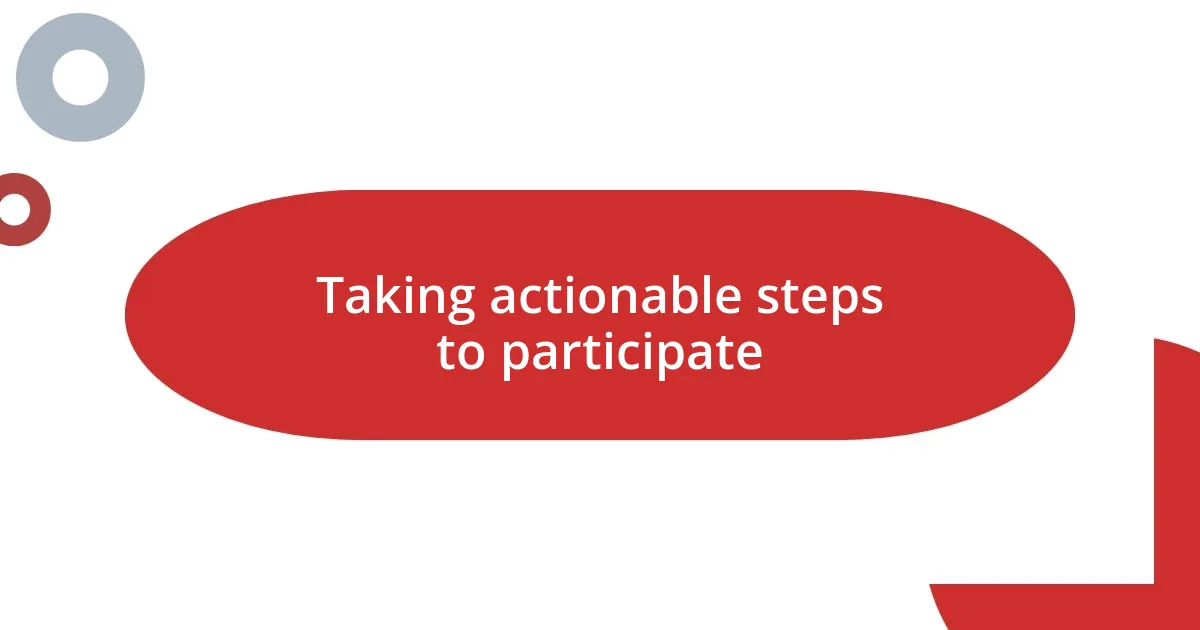
Taking actionable steps to participate
I’ve found that taking physical action can often feel more impactful than simply engaging online. Recently, I joined a local community group focused on environmental policies, and it felt liberating. The energy in the room was electric, with passionate individuals sharing their insights and ideas for change. Have you ever experienced such a moment of collective enthusiasm? It made me realize how powerful it is to connect with people who share a vision for a better future.
Volunteering for a political campaign was another eye-opener for me. I remember spending weekends canvassing neighborhoods, and at first, it felt daunting. But the conversations I had with residents were invaluable; they reminded me that politics isn’t just about policies, but about people. Each story I heard further fueled my desire to stay engaged. Have you thought about how talking to someone face-to-face can shift your perspective? It’s surprising how these interactions can transform apathetic feelings into motivated actions.
Additionally, attending town hall meetings has become a staple in my routine. I was nervous during my first meeting, unsure of how my participation would be received. However, the more I engaged, the more I felt like my voice mattered. One evening, when a local official encouraged residents to share their thoughts, I raised my hand, my heart racing. Speaking up felt empowering, and it reinforced the idea that every voice counts. Have you ever considered how showing up can ignite change? For me, it has become a vital step in reclaiming my stake in the political landscape.
